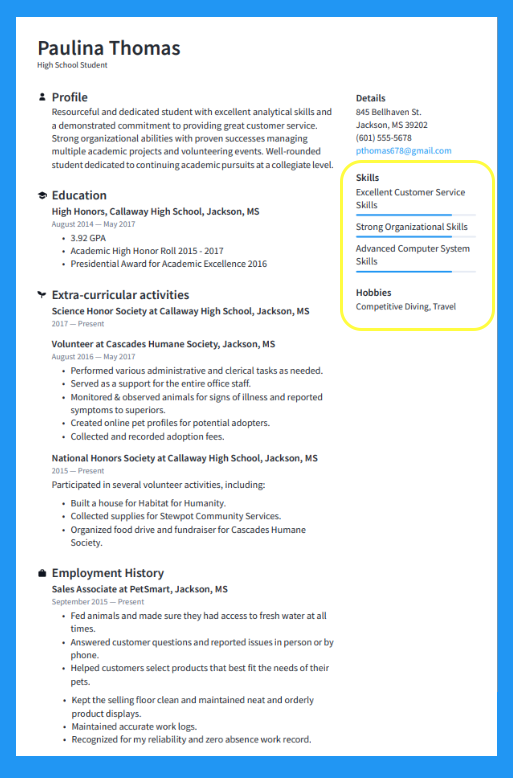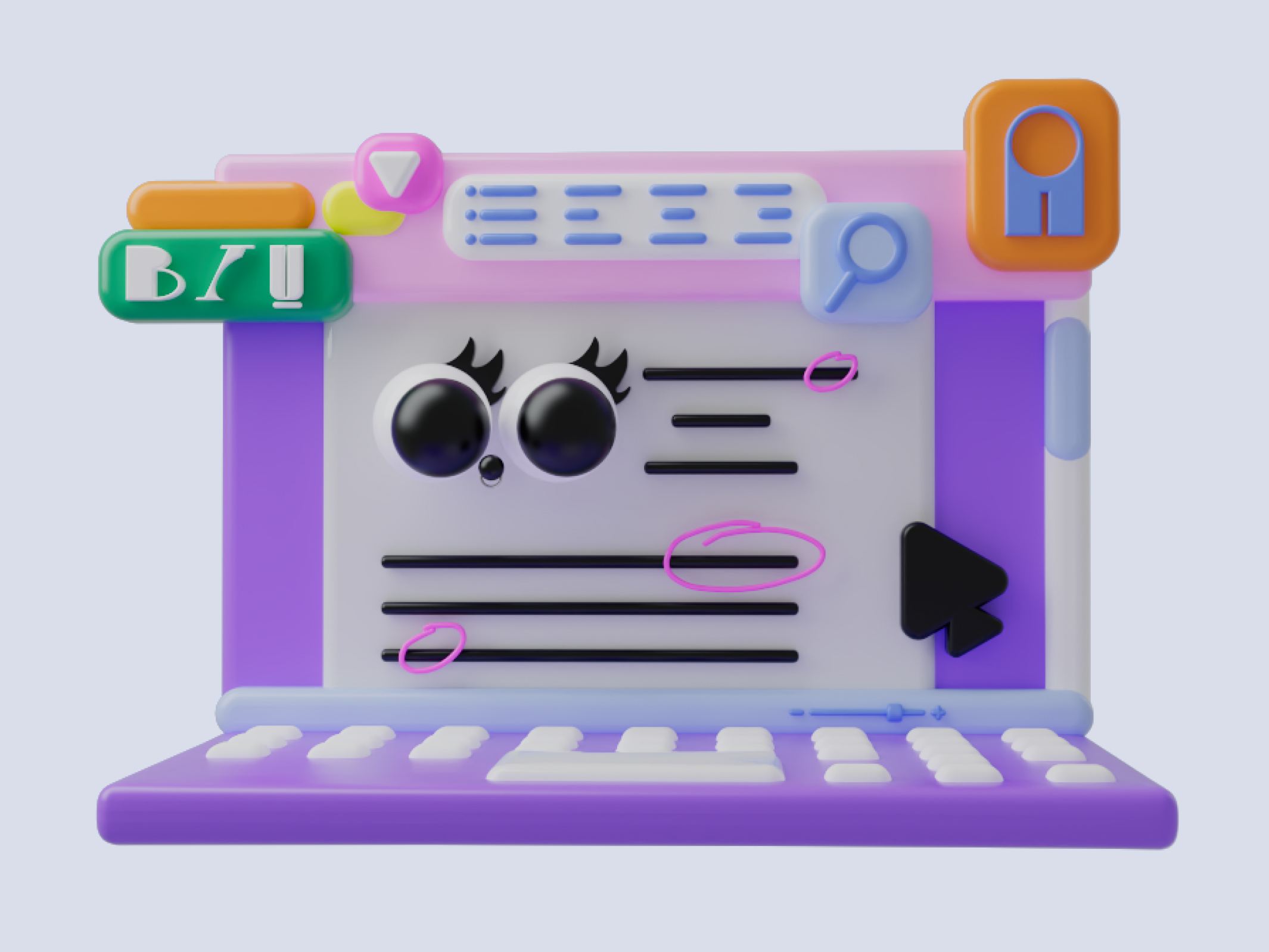In this blog, we’ll cover everything you need to know about strengths to put on a resume, including:
- What exactly are personal strengths in resumes
- 30+ examples of personal strengths to use
- Top 10 examples of strengths for freshers
- What strengths should I put on a resume and how to add them
- Strengths to make your resume stand out
- Strengths to avoid: a final hint
Playing to your strengths is one of the biggest career moves that can lead to improved performance and more recognition at work. It all starts with taking some time to assess your abilities and how to best incorporate them into your job, according to the Harvard Business Review.
What are strengths in resumes?
The strengths are the strong points of your resume. They can come in the form of knowledge or skills you’ve mastered, or they might be the qualities of the resume itself that make the hiring manager stop and take notice of you. In this blog, we’ll talk about all of these different types of strengths to put on a resume.

Recruiters spend 80 percent of their time looking at only six data points on a resume, Mashable reports. Among them: Name, current position and company and education. Keeping key pieces of information clear and easy to find is one of the biggest resume strengths to include.
30+ examples of personal strengths to list on a resume
Now let’s take a look at the other type of resume strengths: your core abilities that make you an excellent hire for the role. What are your greatest strengths? What are the strengths of a good employee? While the best personal strengths for your resume will depend somewhat on your field and experience level, here are some global examples of good resume strengths to write on any resume and a breakdown of their components:
Strategic planning
The ability to think critically about the company’s objectives and your role within them will show a hiring manager that you’re a candidate who will pay back dividends.
You can break these down into:
- Organization
- Foresight
- Business acumen
- Analytics
- Critical thinking
- Innovation
- Market savvy
Communication
Great communication skills are a strength that never goes out of style. You can showcase your ability to express yourself clearly and effectively not only through your work-related examples but also with the right tone and error-free writing of your resume itself.
Communication is a set of skills that includes:
- Active listening
- Attention
- Written communication
- Presentation
- Constructive questioning
- Followup
- Verbal communication
- Customer service
Resourcefulness
There’s a reason why “ problem-solving” and “solutions-oriented” are job description buzzwords – hiring managers are looking for candidates who can look at a problem from multiple angles and tackle it with a positive attitude. Resourcefulness is a core resume strength for any great application.
Resourcefulness can seem vague, so try using one of these strengths on your resume:
- Managing company resources
- Efficiency
- Creative thinking
- Initiative
- Productivity
- Ingenuity
Teamwork
Like communication, teamwork is a strength as old as time, yet just as in demand today as ever when talking about strengths in resumes. Often rebranded as “collaboration,” teamwork means you are nimble enough to lead or follow as needed and can bring the best out of your colleagues to achieve results.
But teamwork is really an umbrella for the following strengths for your resume:
- Leadership
- Project management
- Decision-making
- Conflict resolution
- Negotiation
Emotional intelligence
This in-demand group of strengths refers to the ability to manage your emotions and understand the feelings of those around you. It translates into these important on-the-job strengths:
- Supporting colleagues
- Ability to give constructive feedback
- Empathy
- Calm under pressure
- Motivation
- Objective thinking

Top 10 resume strength examples for freshers
Finding strengths to write on a resume as a fresher (that's “freshman” in the U.S.) or a new graduate can be daunting. However, it’s important to remember that some of the best strengths for your resume are the ones you already possess. By focusing on your personality traits or innate talents you can show a hiring manager that your strengths are ones they’d have a hard time teaching in someone who doesn’t naturally possess them.
Here are some examples of resume strengths for those with little experience:
- Willingness to learn
- Creativity
- Positive attitude
- Motivated
- Self-directed
- Patient
- Honesty
- Strong work ethic
- Dedication
- Interpersonal communication

What strengths should I put on a resume and how to add them
Ask yourself what strengths the company would be looking for in a candidate for the job you’re seeking. Reverse-engineer the problem by looking at it from the employer’s perspective. The strengths the company is seeking might be very different for a salesman, a computer tech or an HR manager. Identify the company’s needs first, and then list your strengths accordingly.
Once you’ve identified the core resume strengths to list, you’ll need to make a plan for incorporating them. There are three main areas where you’ll want to focus on adding strengths to your resume:
- Summary: Your summary section is the one place where you’ll be able to speak directly to the hiring manager on your resume. That’s why it’s such a great place to include resume strength examples. With a professional yet sincere tone, you can quickly draw a hiring manager’s attention to your top abilities and encourage them to keep reading for more detail.
- Employment History: This section gives you the most space to expand on your strengths with those all-important numbers and details to quantify your accomplishments. The employment history section is the best place to include strengths that take more than a word or two to describe.
- Skills: The skills section is the place to emphasize your most important personal strengths in your resume. The bullet-point format of this section lends itself well to strengths that can be summed up in just a single word or short phrase. Make sure you include both hard skills and soft skills.
Include strengths using the exact language from the job description to make it easier for resume scanners and hiring managers to find what they’re looking for. Make sure you offer examples of how you apply each strength instead of merely listing them.
Stuff your resume with qualifications that are untrue for you or don’t make sense in the section where you’ve added them.

Top strengths to make your resume stand out
First, let’s take a look at some of the strengths that can make your resume stand out no matter what field you work in:
- An attractive header: As the topmost part of the resume, a great header helps sell you from the moment the hiring manager lays eyes on the page. A header that emphasizes your name and contact information while adding a bit of color or good design is one of the biggest strengths to have on your resume.
- Clean formatting: The same goes for the rest of the page. Your formatting should have a good balance of white space to text and be easy to read. Make sure to use the same font and color selections throughout to show consistency and a refined style.
- Error-free writing: One of the biggest strengths that will put you ahead of other candidates is writing that’s free of any spelling or grammar mistakes. Make sure to use spell-check, or ask a friend to proofread your resume.
- A job-specific resume: One of the most critical strengths to include in any resume is job-specific information. The job description is a big help here since it tells you the exact skills and knowledge the company is looking for. Make sure to use these references throughout your resume.
- A confident yet respectful tone: The right tone can be one of the best personal strengths in a resume. You’ll want to advocate for yourself and your abilities without coming across as arrogant or presumptuous.
- Properly labeled sections: While it might seem fun or creative to give your resume sections slightly unusual names, this will likely frustrate a hiring manager who has limited time to find the information they care about most. Instead, stick to traditional labels like “Education” or “Employment History.”
- Concrete numbers and details: After you’ve found your strengths to list on resume, you’ll need to back them up with factual information that proves your effectiveness. Statistics, numbers and details can help add weight to your accomplishments.

Strengths to avoid: a final hint
One of the worst ways to highlight your strengths is to fall back on common resume cliches. The following terms are used in resumes so often that they’ve become somewhat meaningless:
- Self-starter
- Team player
- Thinks outside the box
- Detail-oriented
- Hard-working
- Go-getter
- Results-oriented
- Communication skills
Communication skills, for example, are very important, but when everyone claims to have communication skills, this phrase won’t set you apart. Be more specific. Are you a “dynamic public speaker”? “Excellent listener”? “Able to communicate policies effectively to staff”? “Skilled at customer interaction”? Say so.
One of the most challenging questions candidates face in job interviews has to do with their weaknesses. It’s important to reflect before the job interview so that you can come prepared with examples of weaknesses that don’t disqualify you from the position. Your weaknesses should be sincere and accurate, but shouldn’t involve a major skill needed for the job.







